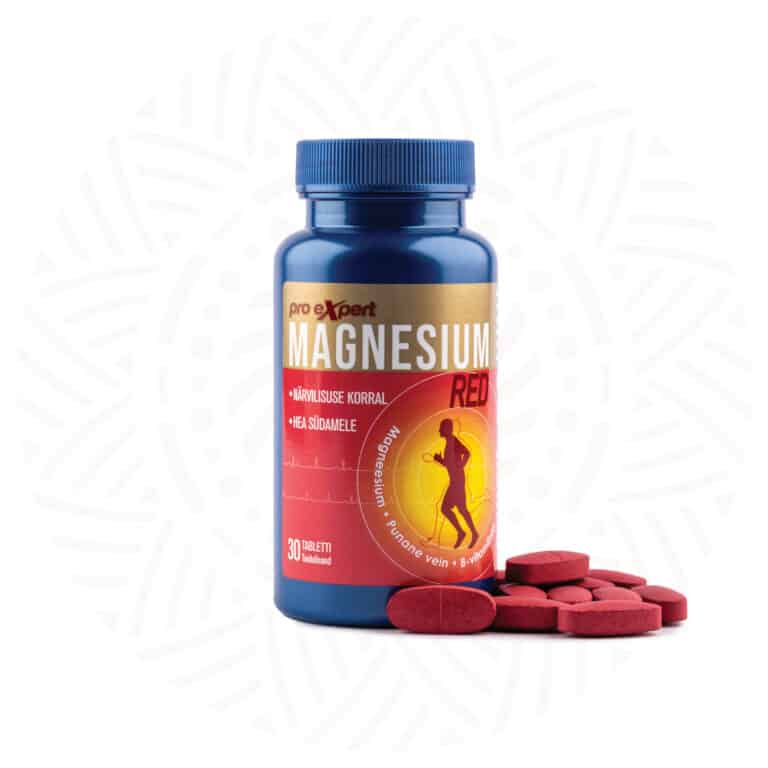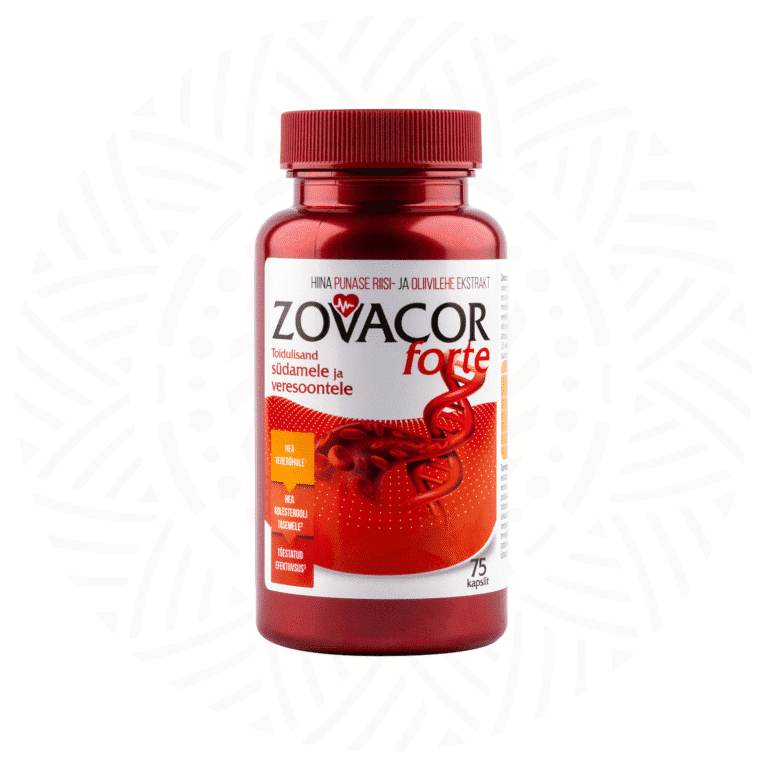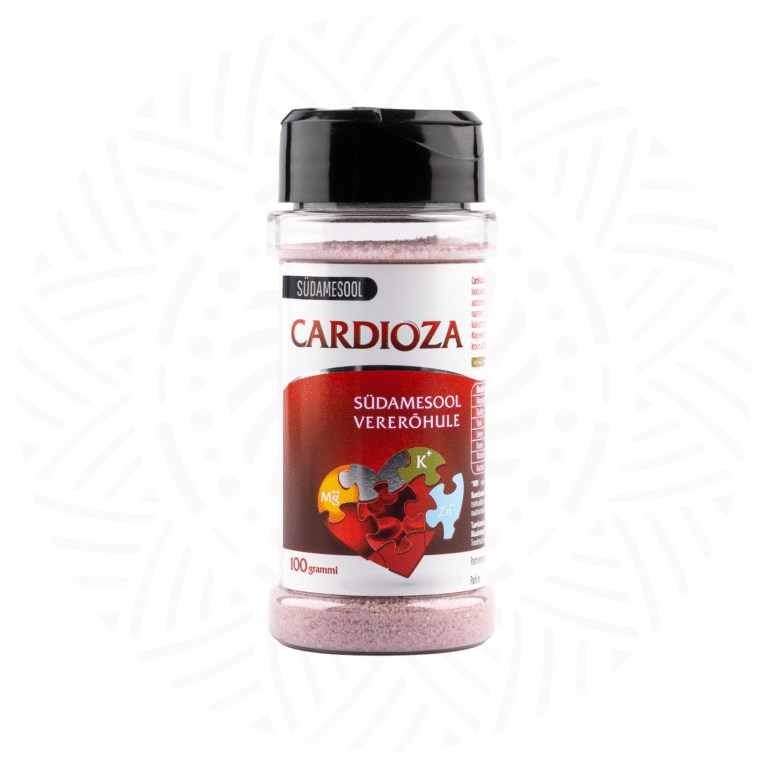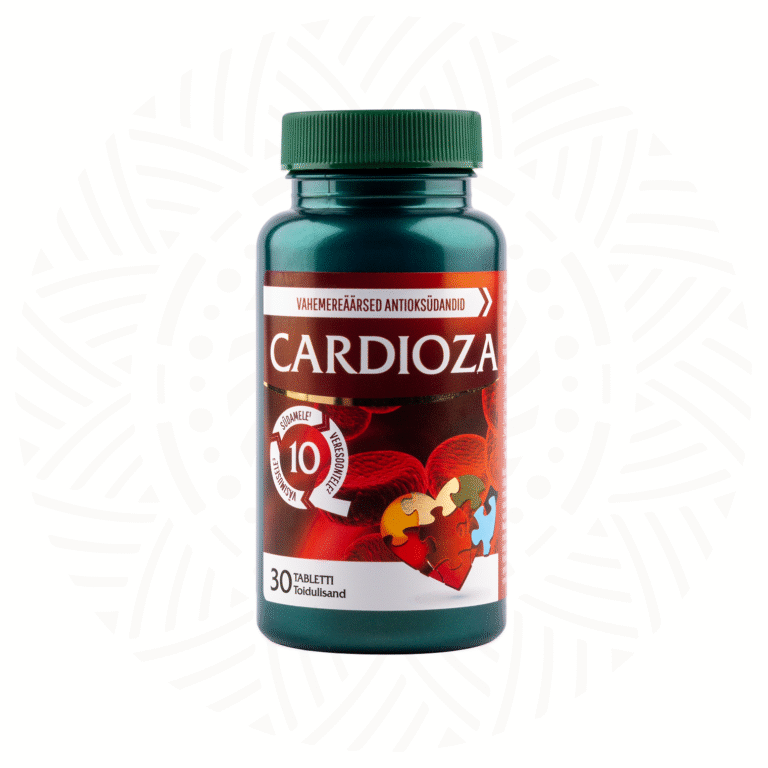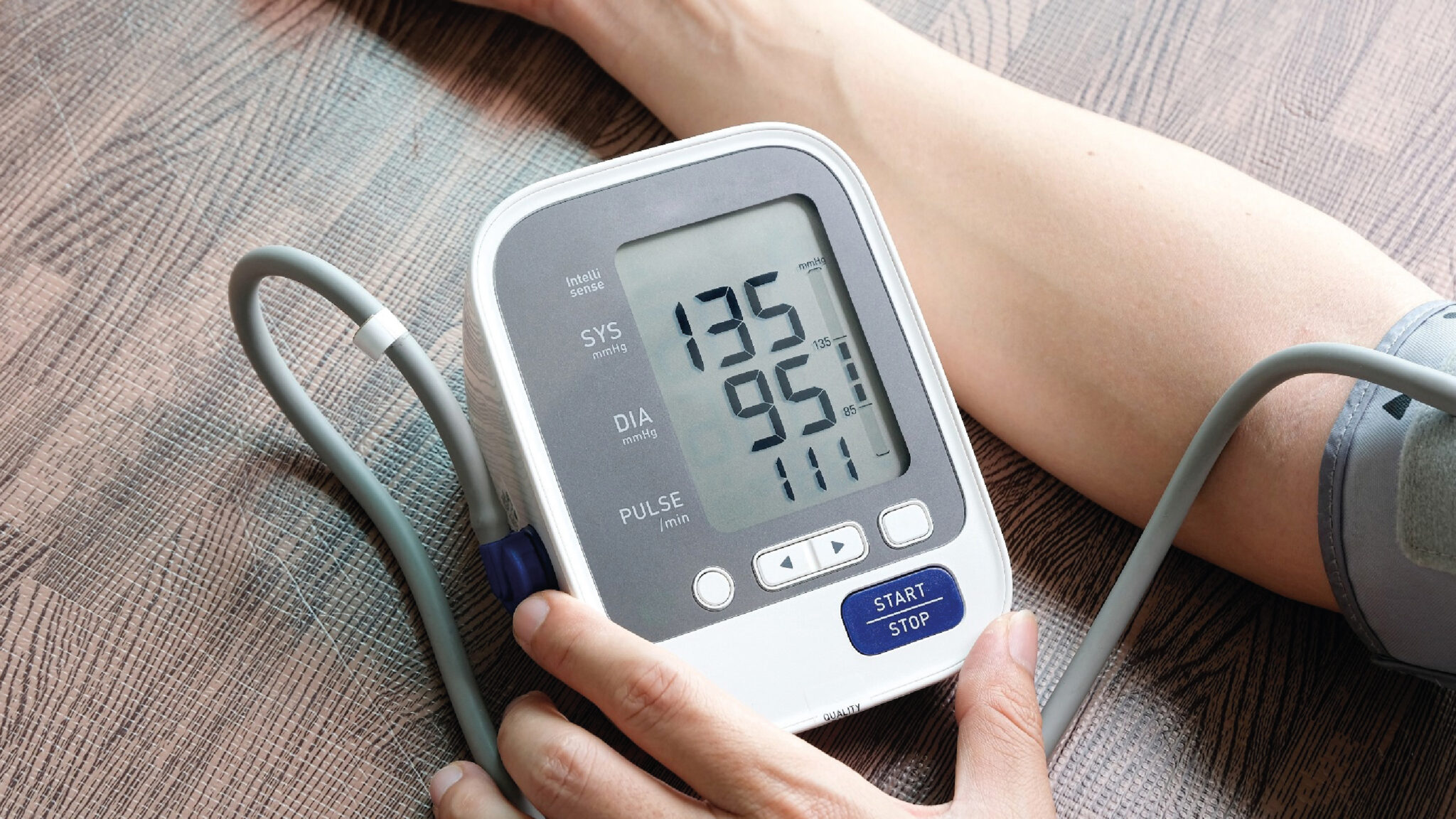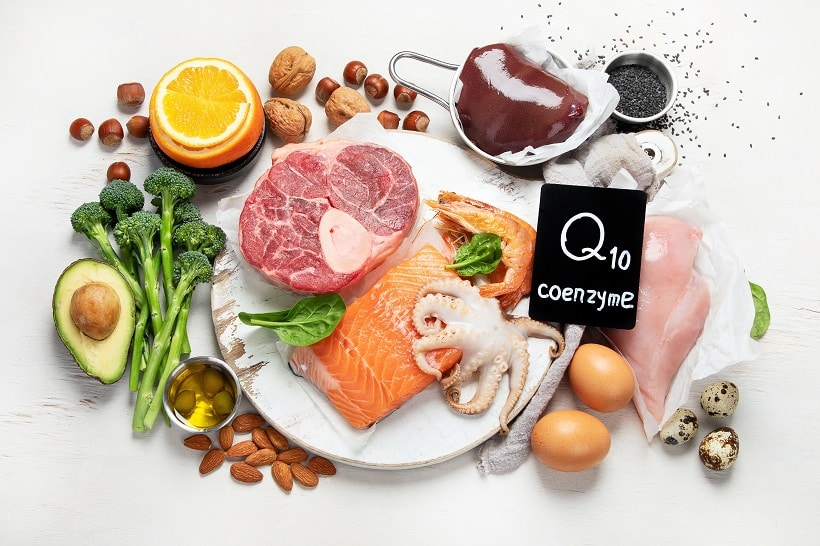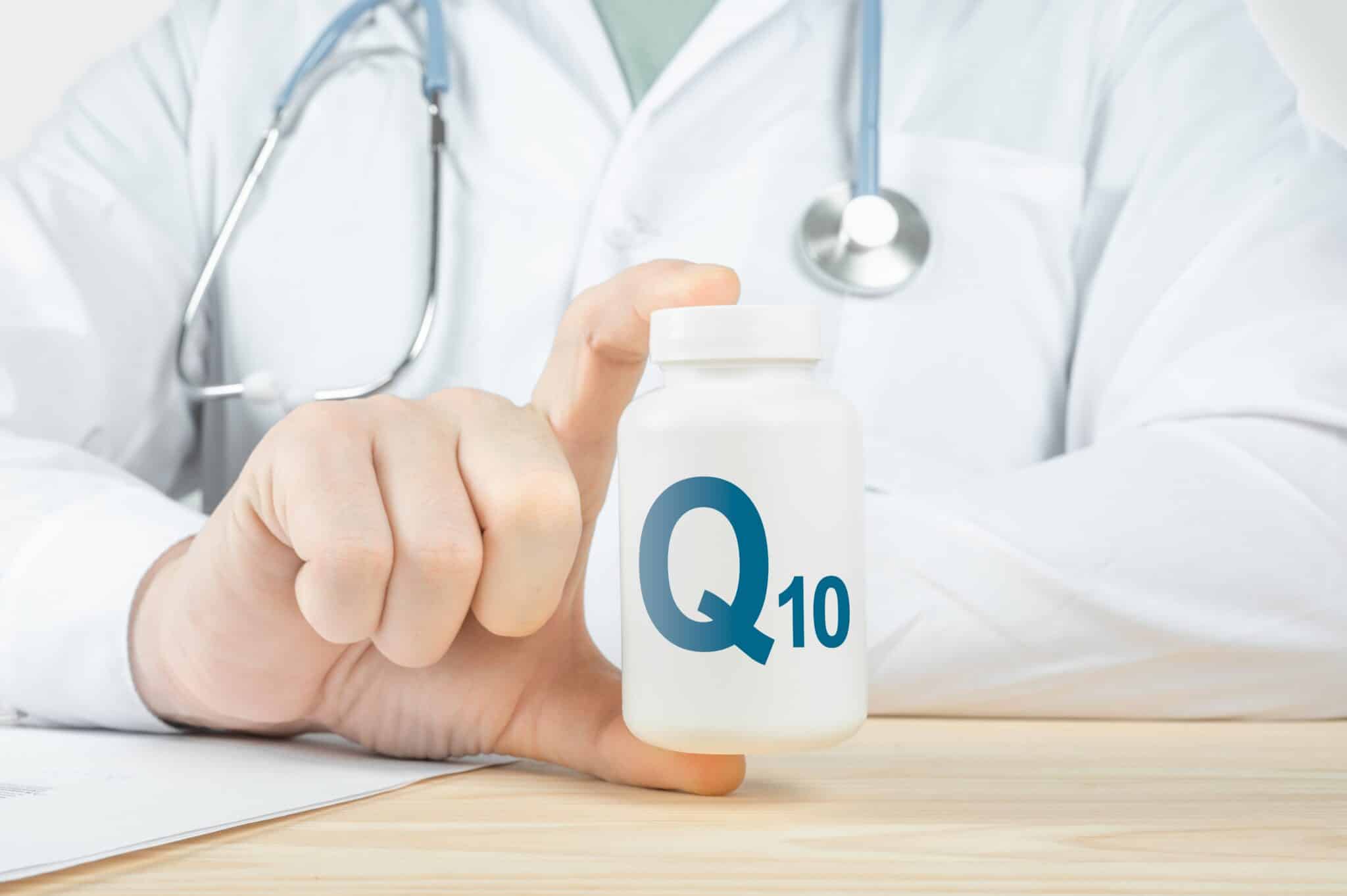Did you know that one in three adults in Estonia suffers from high blood pressure? Surprisingly, many young and middle-aged individuals are included in this group, and they may not even be aware of their condition.
It’s important to know that high blood pressure is the leading cause of death and disability in Estonia. Next, you will learn how to recognize the symptoms of high blood pressure and we will also share effective recommendations for lowering elevated blood pressure.
What is blood pressure?
Blood pressure is the pressure that circulating blood exerts on the walls of blood vessels. It is a numerical value written as a combination of two numbers.
- Upper blood pressure is the pressure in the blood vessels during the heart’s contraction (systolic blood pressure).
- Lower blood pressure is the pressure in the artery between heartbeats (diastolic blood pressure).
Both blood pressure values are important for assessing health. Normal blood pressure is 120/80 mmHg, regardless of age.
Blood pressure fluctuates throughout the day for everyone. It is lower during sleep and higher during physical exertion and mental stress. These are normal and transient fluctuations.
What is high blood pressure?
High blood pressure is considered to be a reading that repeatedly exceeds 140/90 mmHg. And this in a relaxed state. Hypertension, or high blood pressure, is a very common condition among adults.
- Normal blood pressure: below 130/85 mmHg
- Prehypertension: 130-139/85-89 mmHg
- High blood pressure: above 140/90 mmHg
High blood pressure indicates that the heart and blood vessels are overburdened. With high blood pressure, the heart has to exert more force to push blood through narrowed vessels to supply tissues with the oxygen they need for life.
Cardiologists refer to high blood pressure as the “silent killer” because symptoms usually appear only when serious problems and complications have already developed.
Why is high blood pressure dangerous?
High blood pressure is the leading cause of heart disease, stroke, and kidney disease, directly or through its complications, which cause 60% of deaths. For comparison, cancer kills 16% of people.
High blood pressure is a stealthy disease because it has no symptoms in its early stages. Therefore, people often do not suspect that a young person may have high blood pressure. Also, high blood pressure does not show symptoms until its harmful effects have already seriously damaged organs.
High blood pressure is the primary risk factor for all heart diseases, strokes, and kidney diseases. It is important to know that high blood pressure is mostly a lifelong condition that cannot be cured. Keeping blood pressure under control with medication and lifestyle changes helps prevent further deterioration of the condition of the blood vessels.
What are the causes of high blood pressure?
The causes of high blood pressure are unknown in 95% of cases, but several factors increase the risk of developing it:
- excess weight, especially increased waist circumference;
- stress and mental tension;
- heredity;
- age;
- poor eating habits;
- excessive salt consumption;
- sedentary lifestyle;
- excessive alcohol consumption;
- smoking.
Why is high blood pressure higher in the morning?
It’s important to know that higher blood pressure in the morning is normal. This is due to the natural physiological changes in the body that occur upon waking. The body prepares to rise and start the day by increasing the levels of stress hormones such as cortisol. This causes an increase in heart rate and blood pressure to enrich the body with oxygen after a night’s rest.
What does a high lower blood pressure indicate?
If your lower blood pressure is high, it indicates that the pressure of the blood returning to the heart is high. This can be due to narrowed blood vessels, which hinder the free flow of blood. High lower blood pressure significantly increases the risk of heart disease, stroke, and kidney damage.
Normal lower or diastolic blood pressure is below 80 mmHg. If the lower blood pressure is 80 mmHg or higher, it is considered elevated or high, depending on the reading.
What does a high upper blood pressure indicate?
High upper blood pressure indicates that the heart has to work harder to pump blood through the vessels. This can be due to narrowed blood vessels that restrict the free flow of blood. High upper blood pressure increases the risk of heart disease, stroke, and kidney damage.
Normal upper or systolic blood pressure is below 120 mmHg. If the upper blood pressure is 120 mmHg or higher, it is considered elevated or high, depending on the reading.
What are the symptoms of high blood pressure?
High blood pressure is asymptomatic most of the time, which makes it such a dangerous and insidious disease. However, there are some signs that may indicate that blood pressure is not normal:
- headaches;
- fatigue;
- dizziness;
- high blood pressure and dizziness;
- palpitations;
- feeling of pressure in the chest;
- vision impairment.
It is important to know that these symptoms of high blood pressure appear only once serious health problems or even complications have already developed.
What are the complications associated with high blood pressure?
Complications arise from persistently high (over 140/90 mmHg) or fluctuating blood pressure. Complications develop over time, come suddenly, and are irreversible. 75% of all heart attacks and strokes are related to high blood pressure. If blood pressure is high, it can cause the following complications:
- stroke;
- heart attack;
- vision damage;
- heart failure;
- kidney failure;
- erectile dysfunction (in men).
7 recommendations for lowering high blood pressure
If you have been diagnosed with high blood pressure or hypertension, lifestyle changes need to be made immediately. Lifestyle changes are also important if the doctor has prescribed blood pressure medication. It is important to keep blood pressure within normal limits, as persistent high blood pressure poses a great risk for complications.
Cardiologists’ recommendations for lowering elevated blood pressure are as follows:
1. Move for at least 30 minutes a day.
To lower blood pressure, a 30-minute brisk walk daily is sufficient. Continuous moderate-intensity activity is essential, such as walking, jogging, swimming, skiing, cycling, etc. Adding exercise will have an even greater impact on blood pressure.
2. Keep your weight within a normal range
High blood pressure is often associated with excess weight. With weight loss of just 10 kg, blood pressure can be reduced by up to 10 mmHg.
3. Opt for the Mediterranean diet
The Mediterranean diet is the gold standard for lifelong health because it normalizes blood pressure and reduces the risk of heart disease by 31%. The benefit of the Mediterranean diet lies in its high antioxidant content. Antioxidants help restore the natural elasticity of blood vessels and reduce inflammation in the blood vessels.
The Mediterranean diet emphasizes fresh fruits and vegetables, berries, seafood, olives, and olive oil. A sufficient amount of antioxidants each day is 200 grams of fruit and 200 grams of root and vegetables.
4. Reduce salt intake
A person only needs 5 grams of salt per day. According to the Health Development Institute, the average Estonian woman consumes 6.3 grams, and the average Estonian man consumes 9.1 grams of salt per day. 80% of salt comes from hidden sources in store-bought food and ready-made meals. It is known that high blood pressure can be reduced by limiting the daily intake of table salt.
5. Eat more potassium-rich foods
Potassium strengthens the heart muscle and regulates heart rhythm. Studies show that increasing the amount of potassium in food can prevent and lower high blood pressure. Key sources of potassium are plant-based foods such as raisins, dates, bananas, green vegetables, etc.
6. Limit alcohol consumption
Even small amounts of alcohol can raise blood pressure. However, it’s better to choose quality red wine over other types of alcohol, as it contains a lot of antioxidants. Antioxidants have beneficial effects on blood vessels and the heart.
7. Learn to cope with stress
The fast pace of life causes fatigue and often prevents you from noticing the hidden symptoms of stress in time. Stress releases adrenaline into the blood, which narrows the blood vessels and subtly raises blood pressure. Exercise or a walk outdoors can help alleviate stress.
Additionally, help can be found on the pharmacy shelf – magnesium preparations, valerian and lemon balm preparations, as well as ashwagandha preparations.
Tips for measuring blood pressure at home
- 30 minutes before measuring blood pressure, avoid smoking, stimulating drinks (coffee, tea, alcohol, energy drinks), heavy meals, or physical exertion.
- Sit quietly for at least 5 minutes before measuring blood pressure.
- The arm on which you will measure blood pressure should be placed on the table, at heart level, with the palm facing upwards.
- Do not move or speak while measuring blood pressure.
- Perform 2-3 measurements each time with a couple of minutes in between to avoid possible measurement errors.
- If the results are similar, note the highest reading.
- If possible, always measure blood pressure on the same arm.
- Check the reliability of your blood pressure monitor once a year.
Make a blood pressure value of below 140/90 mmHg your personal goal!
